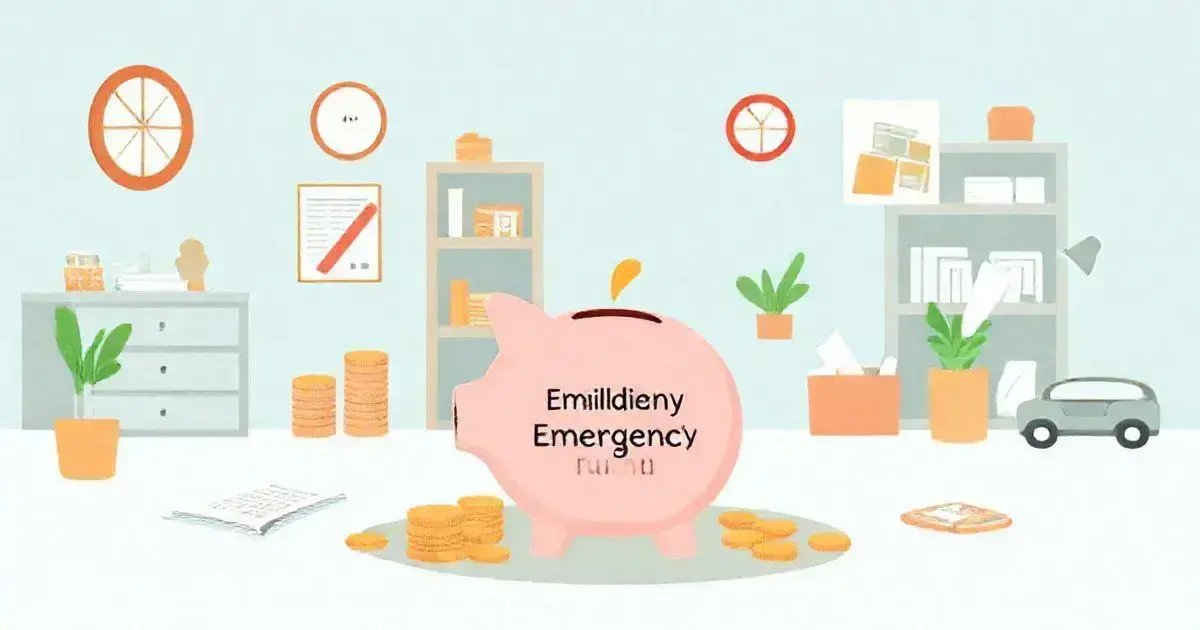Mastering Women’s Personal Finance: Essential Tips You Need
Women’s personal finance is key to securing a stable future. Women often face unique challenges, such as wage gaps and career breaks, making financial planning essential for success.
Budgeting is the foundation of good financial health. By tracking income and expenses, women can prioritize savings and set clear goals to improve their financial situation.
Ready to take control of your finances? Keep reading to explore practical tips for managing money, investing, and achieving financial independence!
Understanding Women’s Financial Needs
Furthermore, financial education is key. Workshops, online resources, and community groups can empower women to take control of their finances. This knowledge not only helps in making informed decisions but also boosts confidence in managing personal finance.
In summary, by focusing on their specific needs, women can enhance their financial literacy, make sound investment choices, and work towards achieving financial independence.
Budgeting Basics for Women

Budgeting is an essential skill for women looking to manage their finances effectively. Start by tracking your income and expenses to understand your financial habits. Use budgeting tools or apps to make this process easier and improve your Women’s personal finance management.
Once you have a clear picture, create a monthly budget that allocates funds for necessities, savings, and discretionary spending. Remember to set goals, such as building an emergency fund or paying off debt, which are crucial elements of Women’s personal finance planning.
Women often face unique challenges, like wage gaps or career breaks. Therefore, prioritizing savings is key. Aim to save at least 10-15% of your income regularly. Having a budget allows you to see where adjustments can be made to increase savings.
Finally, regularly review your budget to ensure it aligns with your financial goals. This practice helps maintain financial health and adaptability in uncertain times.
Investing Tips for Beginners
Investing is an important way for women to build wealth over time. Starting with small amounts can make investing less intimidating. Consider investing in index funds or ETFs as these are low-cost and offer diversification, key strategies for Women’s personal finance growth.
First, establish your risk tolerance. This means understanding how much risk you are willing to take. A basic rule is that younger investors can typically handle more risk, as they have more time to recover from market downturns. Knowing this is essential for women looking to make informed decisions about Women’s personal finance.
Next, create a long-term plan. Investing is not a quick way to get rich, so set goals for the future. This could be buying a home, funding education, or retirement.
Additionally, educate yourself about different investment options. Books, online courses, and financial advisors can provide useful information. Stay informed about market trends and economic indicators.
Finally, keep emotions in check. The market fluctuates, and panic selling can lead to losses. Stick to your plan and adjust only when necessary.
Retirement Planning for Women

Retirement planning is essential for women to ensure a secure future. Start by determining how much money you will need for retirement. Consider factors such as current expenses, healthcare costs, and desired lifestyle to align with your Women’s personal finance goals.
Open a retirement account, like a 401(k) or an IRA. These accounts offer tax benefits and help your savings grow over time. It is important to understand how compound interest works, as it can significantly increase your savings and strengthen your Women’s personal finance strategy.
Women often face unique challenges, such as taking time off for caregiving. Therefore, it is crucial to contribute to retirement funds as consistently as possible. Even small amounts add up over time.
Additionally, review your retirement plan annually to adjust for any life changes. This could include salary increases, career changes, or shifts in financial goals.
Educating yourself on investment options is also important. Stocks, bonds, and mutual funds can help grow your retirement savings. Seek out financial advisors if needed to help navigate these options.
Managing Debt Effectively
Managing debt effectively is crucial for financial health. Start by listing all your debts, including credit cards, loans, and other obligations. Knowing the total amount helps create a plan.
Prioritize high-interest debts first. Focus on paying these down to save money on interest. Consider using the avalanche method, where you pay the minimum on all debts and put extra toward the highest interest rate.
Another approach is the snowball method, which focuses on paying off the smallest debts first. This can provide quick wins and boost motivation.
Always make at least the minimum payments on time to avoid late fees and damage to your credit score. Set reminders or automate payments to ensure this happens.
Additionally, create a budget to limit spending and free up more money for debt repayment. Look for areas where you can cut costs and redirect those funds to pay down debt.
Finally, seek help if needed. Debt counseling services can provide guidance and resources.
Building an Emergency Fund

Building an emergency fund is a crucial step in achieving financial security for women. Start by setting a goal of saving at least three to six months of living expenses. This fund acts as a financial cushion for unexpected events like job loss or medical emergencies, a key element in Women’s personal finance.
Begin by assessing your current expenses. Identify how much you would need to cover essential costs such as housing, food, and utilities. Use this information to determine your target fund size, keeping in mind your unique Women’s personal finance goals.
Next, create a regular savings plan. Aim to save a fixed amount each month, even if it’s small. Automating transfers to a dedicated savings account can make this process easier and more consistent.
Consider using a high-yield savings account for your emergency fund. These accounts typically offer better interest rates than standard savings accounts, helping your money grow over time.
Finally, revisit your emergency fund goal regularly. As your expenses change or increase, adjust your savings target accordingly.
Real Estate and Women Investors
Real estate investment can be a powerful way for women to build wealth. It is essential to understand the basics of the market and identify what type of property to invest in. Consider residential properties like single-family homes or multi-family units as they can provide steady rental income.
Start by doing thorough research. Look into areas with strong job growth, good schools, and amenities. These factors can increase property value over time. Networking with local real estate agents can also help you find the right opportunities.
Another important aspect is financing. Explore different mortgage options and find one that fits your budget. It’s crucial to understand interest rates, down payments, and closing costs before making a decision.
Additionally, consider property management options if you choose to rent out your investment. This can save time and ensure that your property is well-maintained.
Finally, educate yourself continuously. Attend workshops, read books, and join real estate investing groups to improve your knowledge and skills.
Financial Independence and Empowerment

Additionally, educate yourself about financial literacy. Attend workshops or read books about personal finance. The more you know, the better decisions you can make.
Lastly, surround yourself with positive influences. Join groups or networks of like-minded women who share similar financial goals. Having support can help you stay motivated and accountable.
Frequently Asked Questions about Women’s Personal Finance
Why is budgeting important for women?
Budgeting helps women track income and expenses, allowing for better financial planning and prioritization of savings.
What should be included in an emergency fund?
An emergency fund should cover at least three to six months of essential living expenses for unexpected events.
How can women start investing?
Women can start investing by opening a retirement account and exploring low-cost options like index funds and ETFs.
What are some tips for managing debt effectively?
Prioritize high-interest debts, create a budget, and consider using methods like the avalanche or snowball technique to pay down debt.
Why is financial education important for women?
Financial education empowers women to make informed decisions about their finances, leading to greater independence and security.
How can I find support as a woman investor?
Join groups, attend workshops, or seek mentorship from other women investors to gain insights and support in your investing journey.
